The idea that communities are capable of managing their natural resources in a way that is efficient, equitable and sustainable forms the foundation of the Community-Based Natural Resources Management (CBNRM) approach. CBNRM has remained a part of the development discourse since the mid-1980s. It has been applied widely, from the forests of Malawi to the coastal zone of Bangladesh. But it appears that leaks are beginning to spring in the CBNRM foundation. No longer considered to be a panacea to natural resource management, many are beginning to recognize the weaknesses and limitations of the approach.
In Bangladesh, CBNRM and accompanying decentralized water management policy reforms have been promoted for decades by major international finance institutes and donors alike. It has featured prominently in the country’s coastal zone where continuous governance and management challenges afflict a series of polders (low-lying tracts of land surrounded by man-made embankments) that help to protect farmers from tidal floods and saline intrusion.
How successful has this decentralized approach been? To date, most evaluations have been limited to analyses of short-term outcomes in light of stated project aims. But a recent paper sheds new light by digging into the theoretical framework of CBNRM and unpacks its underlying assumptions using empirical interview and survey data collected from over 2000 respondents in nine polders.
In ‘The Imposition of Participation? The Case of Participatory Water Management in Coastal Bangladesh’, Camelia Dewan, Marie-Charlotte Buisson and Aditi Mukherji tackle the question: How successful have Bangladesh’s participatory water management initiatives been?
Limiting representation presents challenges
In 2000 Bangladesh established its Guidelines for Participatory Water Management in order to ensure that all local people could influence the water decisions that affected them. The document was innovative in its effort to decentralize responsibility to local stakeholders. But by mandating the creation of elected community water management organizations (WMOs) it had the effect of placing restrictions on exactly which local stakeholders have a say in water management.
Limiting representation of local stakeholders to WMOs has proved problematic. WMOs tend to lack both transparency and accountability. They have become resources for the elite members of society who have the time, money and influence to serve as representatives. Membership quotas mandated by the Guidelines have resulted in high degrees of tokenism among women and landless representatives.
At the root of the shortcomings of WMOs lies a flawed assumption of shared common interests amongst Bangladeshi ‘communities’. Qualitative survey findings suggest that WMOs are a purely external idea, and exist only as a precondition to receiving project funding.
The end result is that the CBNRM model has failed to foster a truly inclusive system for the management of Bangladesh’s coastal infrastructure. The current setup is unable to address the underlying conflicts that socio-economic inequalities produce. And by limiting community participation to consultation, water management remains a top-down initiative. Community contributions for infrastructure maintenance fall far short of the huge sums required. Even government agencies are unable to fulfill their financial commitments to the coastal zone infrastructure.
As a result of these gaps, the coastal zone remains locked in a project-driven cycle where infrastructure deterioration both precedes and follows rehabilitation. In an area highly vulnerable to climate change, the risks associated with increasingly frequent cycle of deterioration are high. The continued investment into WMOs that have proven to be ineffective is questionable.
Recognizing existing solutions
The paper examines the ways in which WMOs may undermine or compete with the role of local government institutions working in the water management arena. It calls for the formal recognition of the role that local government institutions, such as the Union Parishads (UPs), are already playing. Union Parishads have only a limited formal role in water management. But despite their broad mandate and frequent underfunding, UPs are commonly involved in a number of polder management activities, including emergency infrastructure maintenance, conflict resolution and operation of sluice gates.
Perhaps most importantly, local government institutions are better placed to oversee the sustainable maintenance scheme that the coastal zone is in dire need of. UPs are ideal coordinators of water management in the polders because they are permanent government institutions and, unlike WMOs, are not dependent on project funding.
Discussions over the involvement of UPs in the water sector often involve concerns of politicization, corruption and elite capture. While UP representatives are not immune to these problems, they can be held accountable for their actions by voters. And NGOs have demonstrated the ability to increase the accountability of UPs through activities that empower and mobilize communities.
Acknowledging the politics of water
Author Aditi Mukherji reflects, “Creating an additional layer of institution in the form of WMOs in an attempt to ‘keep out the politics’ duplicates preexisting and well-functioning local government institutions. The support for WMOs comes from the discourse of CBNRM, which implies that such bodies will be representative and also immune to elite capture and local politics. But we say that water management is inherently political, as all resource allocations are. And when politics inevitably creeps in, ‘apolitical’ WMOs become redundant.”
In order for participatory water management to be sustainable, effective, and equitable, water policy must recognize the politicized nature of water management and the limitations of the ‘representative’ bodies CBNRM promotes. Policymakers ought to formally recognize the pro-active role Union Parishads are already undertaking in water management and institutionalize the much-needed funding for water infrastructure maintenance in the coastal zone of Bangladesh.
For more information:
Contact the authors of ‘The Imposition of Participation? The Case of Participatory Water Management in Coastal Bangladesh'
Camelia Dewan: Department of Social Anthropology, SOAS, University of London, London; c_dewan@soas.ac.uk
Marie-Charlotte Buisson: International Water Management Institute, New Delhi, India; m.buisson@cgiar.org
Aditi Mukherji: The International Centre for Integrated Mountain Development, Kathmandu, Nepal; amukherji@icimod.org
See recent related video: The Beels of Bangladesh
This article is based on data collected from the project Water Governance and Community-based Management in Coastal Bangladesh – a part of the CGIAR Challenge Program on Water and Food.




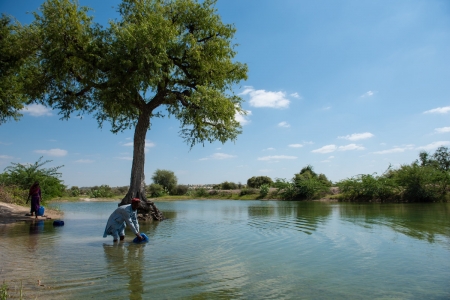
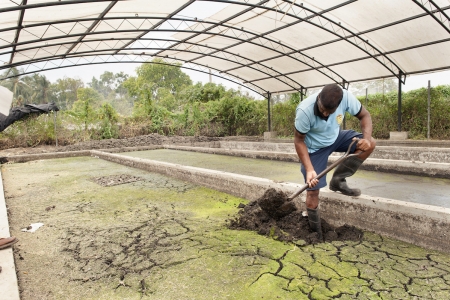
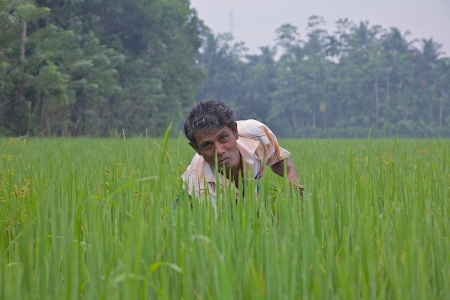
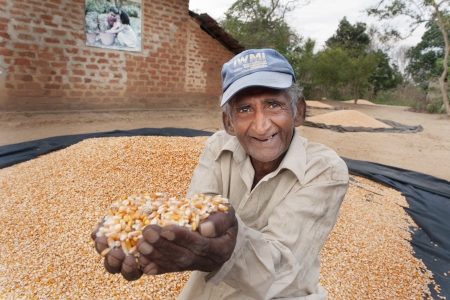
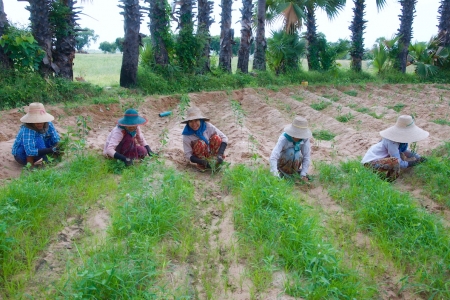
Comments
Interesting analysis. Based on this summary (I have not read the paper), an alternative argument would be based on the statement that the guidelines limited the range of stakeholders in WMOs: if government had left this open to local communities to decide, WMOs might have proved more effective. I carry this argument further: government should allow communities to decide whether they wish to management resources through UMOs or create purposeful institutions through which they can manage resources. I take an 'institutional creativity' perspective drawn from Cleaver--this paper's solution remains too prescriptive [based on this summary].
Thank you for your comment and for introducing this 'institutional creativity' perspective.
I may want to add that in this context the guidelines didn't really limited the range of stakeholders to be included in the WMOs, on the contrary, the guidelines were very inclusive and considered that everyone in the community should be member and involved in water management. I then quite agree that communities should be allowed to decide themselves who will manage their natural resources; one step further I would say that some communities already decided and made their choices between the different institutions available; in that sense we observed that in many cases communities refer to UPs when they face problems.
Finally, we have to be careful when we consider 'communities' in Bangladesh, and especially if more decision making power is given to these communities. Indeed, what we call a community is far from being a homogeneous group, mechanisms of exclusion/self-exclusion are common and we should always wonder who is in/out and who really holds the decision power.